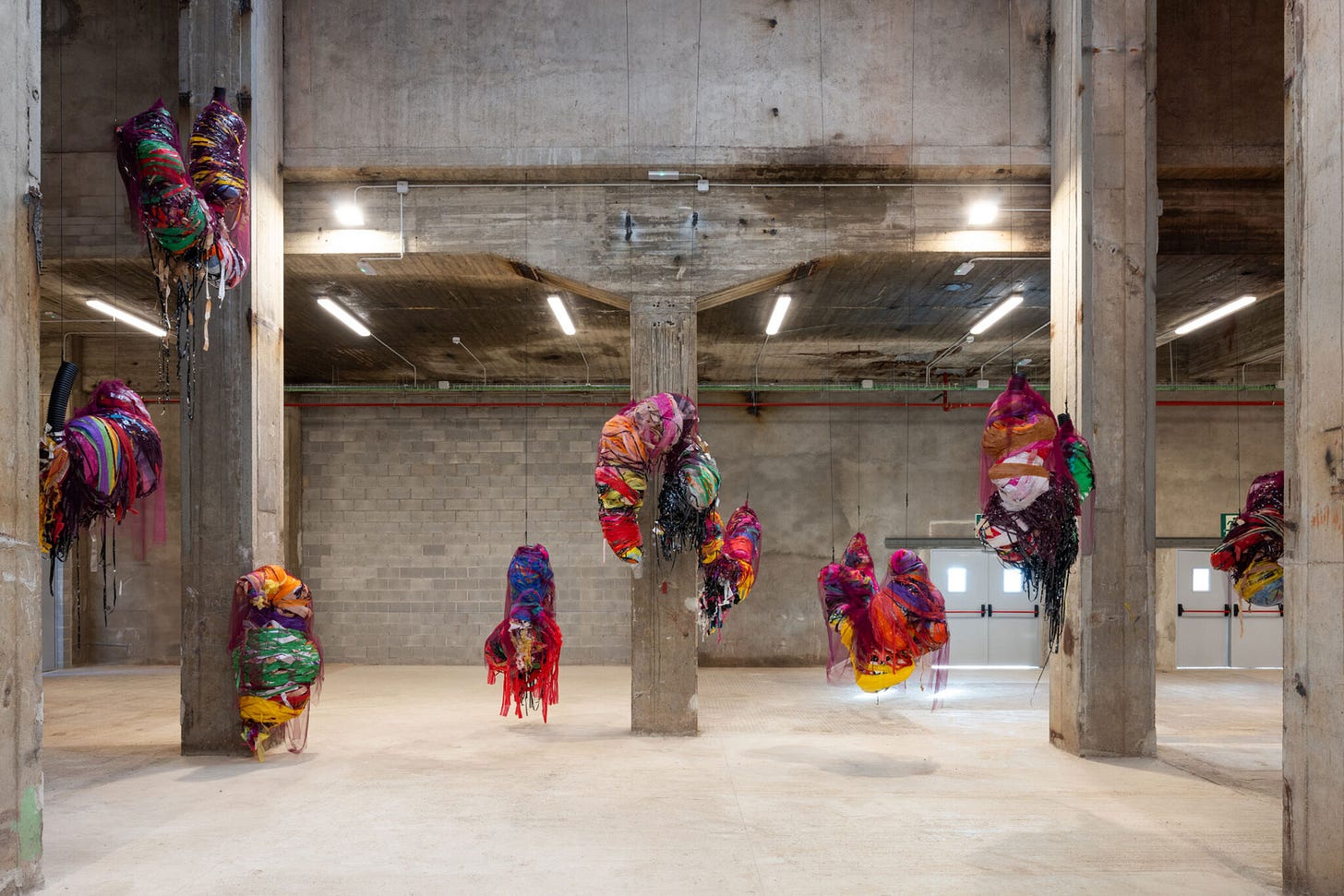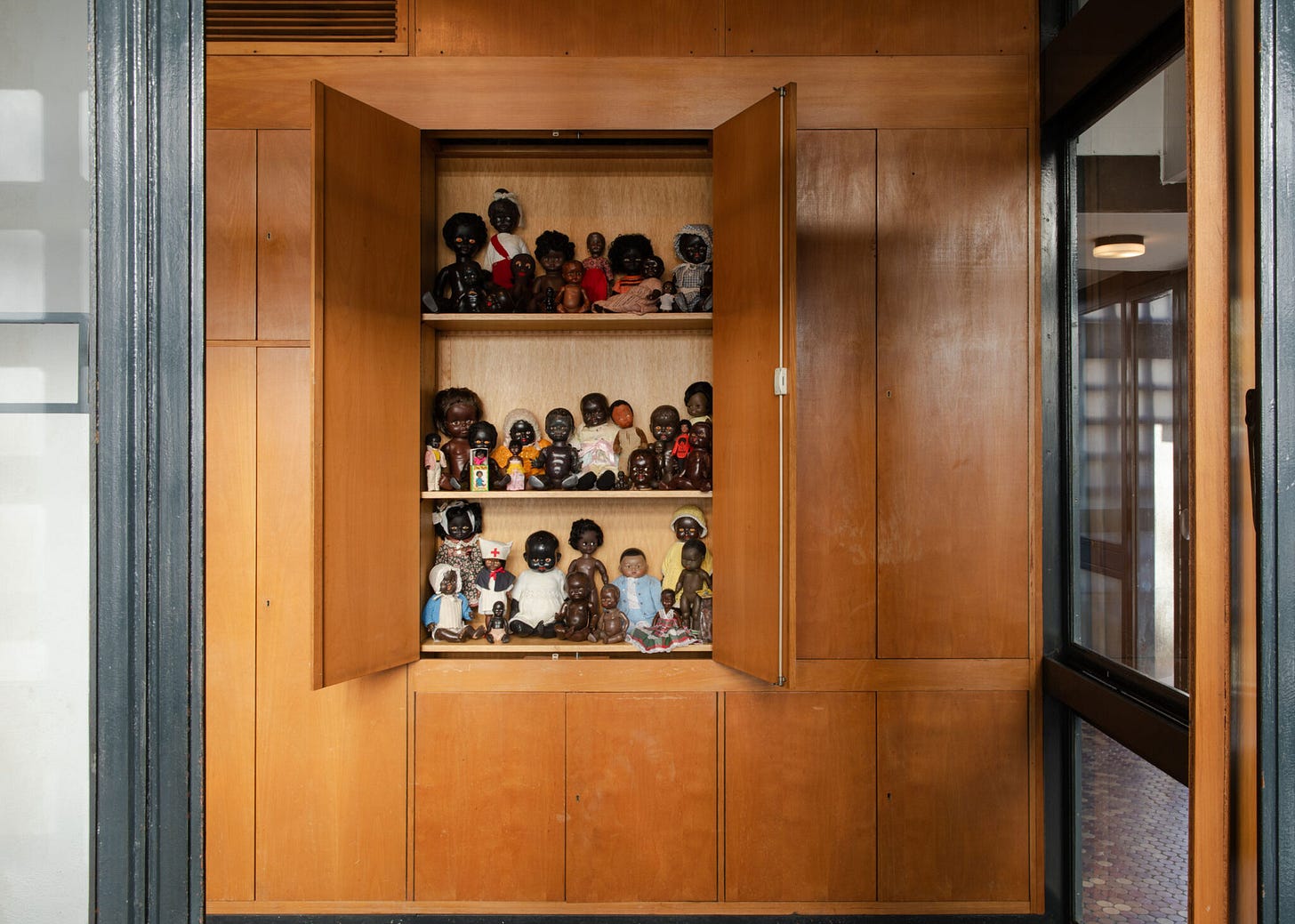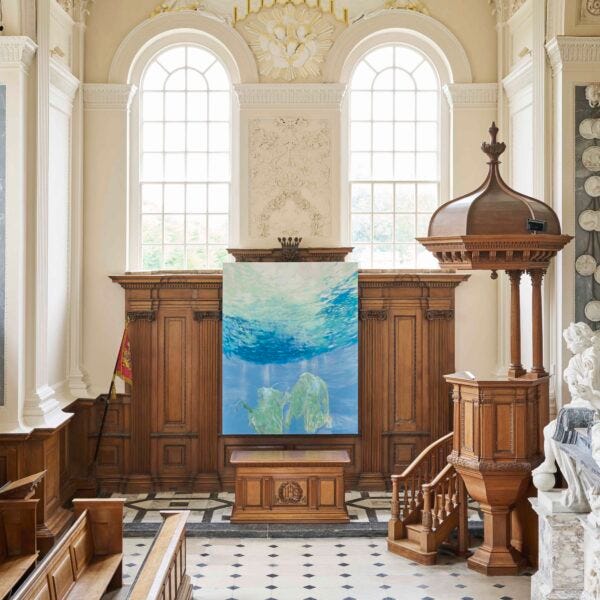Hello friends! Sorry for missing a week or so, I was ill and then I was ill again. Now I am well and having a very cultural time. This week was the Turner Prize Shortlist, announced on the 250th anniversary of JMW Turner’s birth. Here’s a bit about it. I also saw some theatre – Retrograde, Ben and Imo.
Turner at 250
This week I went to the Turner prize shortlist announcement IRL. I usually just get the press release but I had a feeling it would be a good year. And it is! I like ALL of the shortlisted artists.
Here they are:
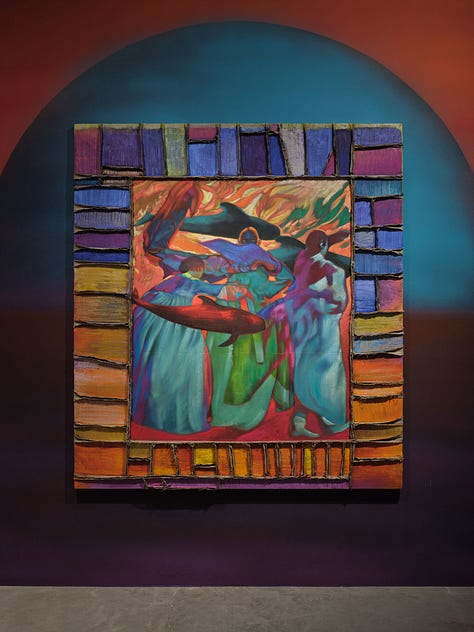
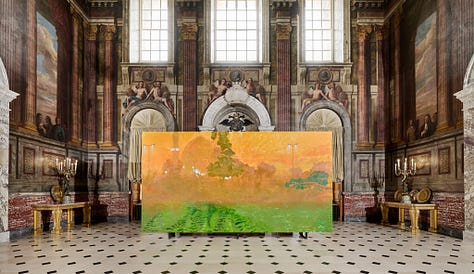
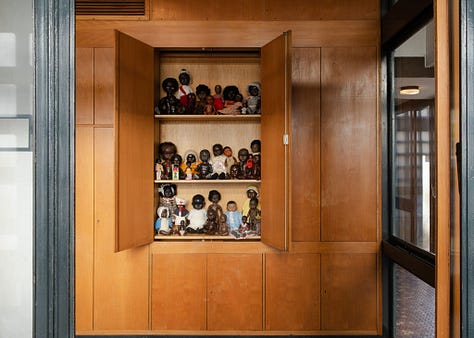
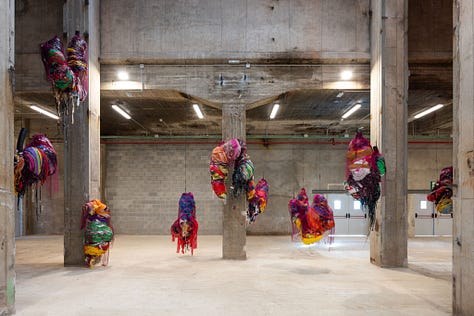

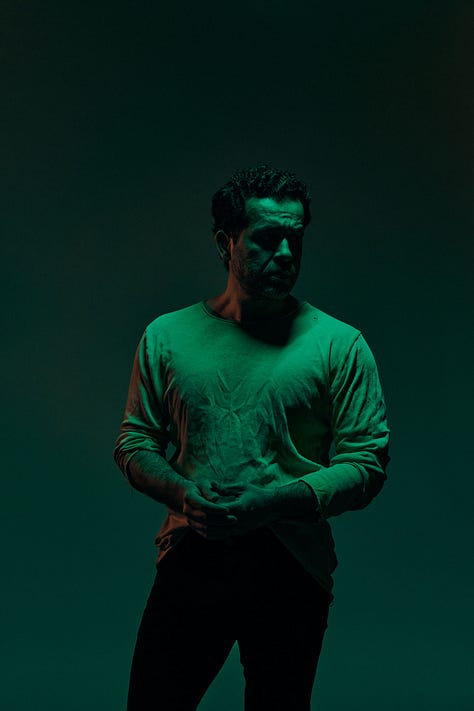
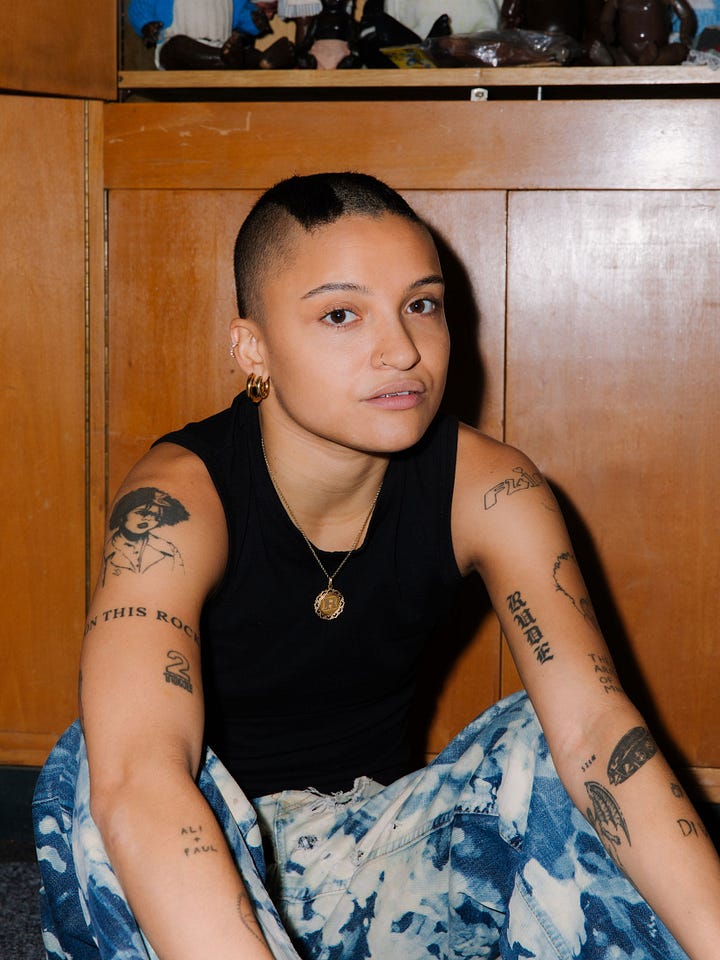
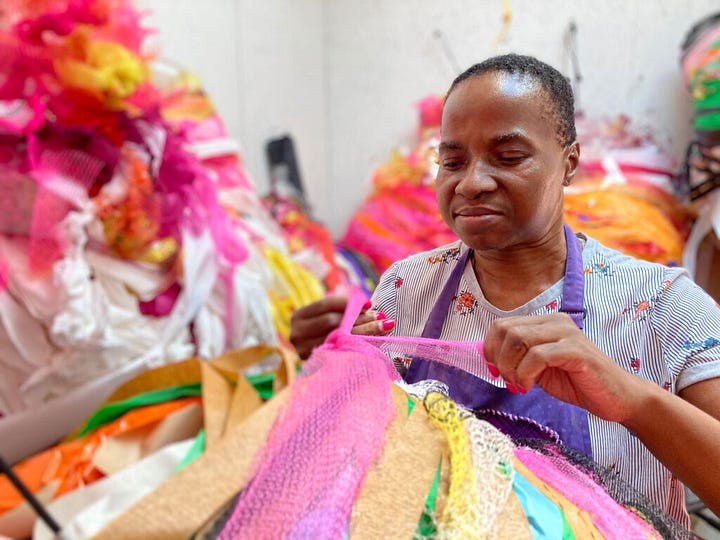
Nnena Kalu
Nnena Kalu is an artist working in textiles. Textiles is an underated and feminist medium, because it often gets classed as ‘craft’ and ‘craft’ is hobbyist women’s work. So many textiles art courses have closed so working in this medium is a kind of rebellion in itself. Nnena is non-verbal and so is locked out of some parts of the world. This rebellious vibrant articulacy is a joy to see. It’s cool this is being recognised by the Turner prize judges. Look at how these colourful creations are hanging out, like organic creatures, like cocoons – in this warehouse outside Barcelona.
Rene Matic
Rene Matic looks at belonging and identity through often tender little arrangements that are once homely and comforting but also speak to a broader political climate.
Rene Matic: No Place
Like this, above, which takes Biden’s blanket statement (is this a blanket, or a sheet?) in the aftermath of the Trump assasination attempt, saying that there is “No Place for political violence or for any violence ever in our country”. But, yeah, no place for certain people either.
Mohammed Sami
Mohammed Sami moved to Sweden from his native Iraq, where he witnessed the war. He now lives in London and exhibited After the Storm at Bleinham Palace with a series of large-scale paintings about war, exile and displacement that captured judges’ imaginations. They’re a bit disturbing, a bit other-wordly.
Mohammed Sami: Hiroshima, Mon Amour
Zadie Xa
Zadie Xa is Canadian / Korean and uses folkloric imagary and Korean craft traditions like jogakbo (patchwork) and bojagi (cloth made from that patchwork to wrap gifts), to create narratives about colonialism, immigration and integration. Again, its nice to see some textiles work in the mix. She also works with sound and interative sculpture to create a textured, dreamy experience
Turner Prize 2025 is part of Bradford 2025 UK City of Culture and the shortlist is going on display across Bradford, ‘from the mills to the hills’ from 27 Sep 2025 – 22 Feb 2026 - free.
I got a moment with Shanaz Gulzar, the City of Culture’s
Creative Director. Who was delighted with the shortlist and to be hosting the artists in Bradford. Bradford has, of course, got textiles and mills woven into its history.
“The Bradford City of Culture is the story of the culture, the landscape and the people and there are half a million people, so that’s a lot of pressure!” said Gulzar.
“I have a huge amount of pride in Bradford. People have forgotten that it was the biggest wool producer in the world. The Labour movement was announced on the steps of Lister Mills and there’s a huge amount of cultural history at this location.”
“Lister Mill employed 11,000 people and Salts Mill I have a personal connection to because it was where my father got his first job when he came to the UK from Kashmir.”
Keep reading with a 7-day free trial
Subscribe to Emily’s Substack - Working Differently to keep reading this post and get 7 days of free access to the full post archives.




